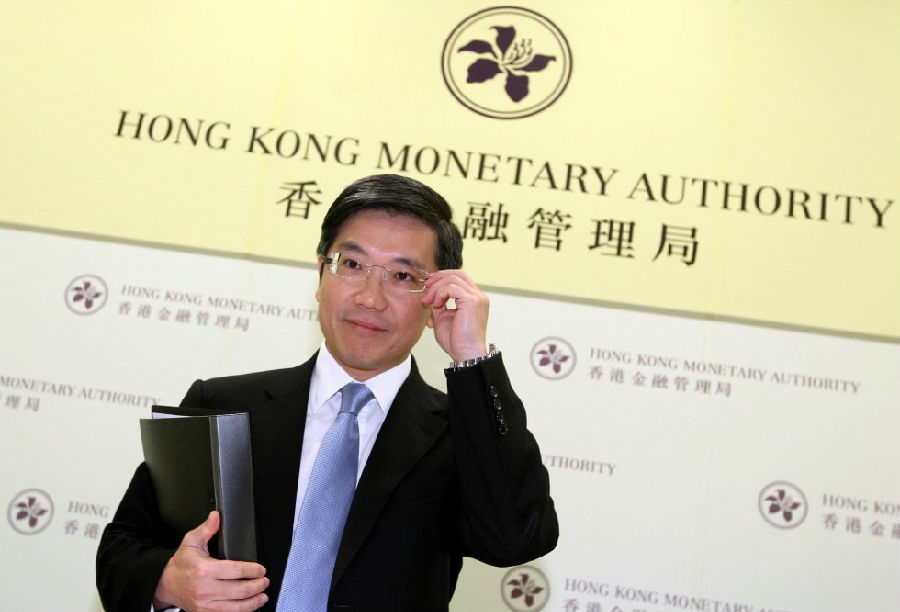Banks could face fines in anti-money laundering law compliance probe
2015-6-4

■ Arthur Yuen says it is time to get tough to ensure all banks are complying with the anti-money laundering law
Some banks in Hong Kong may have failed to meet the city's anti-money laundering requirements and could potentially face multimillion-dollar fines, Hong Kong Monetary Authority deputy chief executive Arthur Yuen Kwok-hang said on Wednesday.
"The authority is investigating some banks over their deficiencies in adhering to the high standards set out in the anti-money laundering law introduced in 2012," Yuen told reporters at an informal gathering. "We are still in the process of investigating and collecting evidence. We would first need to conclude our investigation before deciding if any penalty action would need to be taken."
Yuen declined to name the banks or say how many of them are under investigation. "What I can say is there is more than one," he said.
He said the investigations had revealed two major problems.
"Firstly, some banks do not have sufficient systems in place for background checks of clients. Under the new anti-money laundering law, all banks or financial institutions must have a 'know your client' system and procedures to have due diligence to check if the new clients may be involved in money laundering activities," he said.
"Another major problem is that some banks do not have a good record-keeping system to monitor suspicious transactions for reporting. This may be related to some banks having not yet invested sufficient technology and manpower into the new requirements."
As the city's banking regulator, the HKMA can directly impose penalties for breaches of the anti-money laundering law, without any prosecution.
"There would be three potential penalties. These include remedy orders for banks to improve their system, a public reprimand, or a fine up to HK$10 million on each breach," Yuen said.
Overseas regulators in recent years have taken a tougher stance towards banks in relation to money laundering. The New York Department of Financial Services in August 2014 fined Standard Chartered US$300 million after its New York branch failed to flag high-risk transactions from clients in Hong Kong and the United Arab Emirates.
HSBC agreed to pay a record US$1.92 billion in fines in December 2012 to settle a money-laundering and terrorist-financing charge by US authorities.
Yuen said the HKMA had not yet imposed any penalties as the anti-money laundering law was introduced only in 2012. He agreed banks needed time to understand the requirements but, three years on, it was time to get tough to ensure all banks were complying.
"The standards for anti-money laundering provisions are ever increasing internationally and banks in Hong Kong have to catch up to invest in talent and systems," he said. "It takes time for an investigation. We just started the investigation last year and may need to review information going back three or four years ago."
He said the HKMA's investigations focused on whether banks have sufficient systems in place to report suspicious activities to the Joint Financial Intelligence Unit, which is run by the police and customs. The unit is responsible for investigations into reported cases.
Yuen said that of the 37,000 reports last year, 83 per cent or 31,095 were filed by banks, with the rest by brokers or insurers.
He said some banks had gone to extremes in allegedly not allowing some overseas charity groups, or customers from some minority groups, to open accounts. Seven such complaints have been made to the HKMA this year.
"We have alerted the banks not to discriminate against any clients," he said.
Source: South China Morning Post



